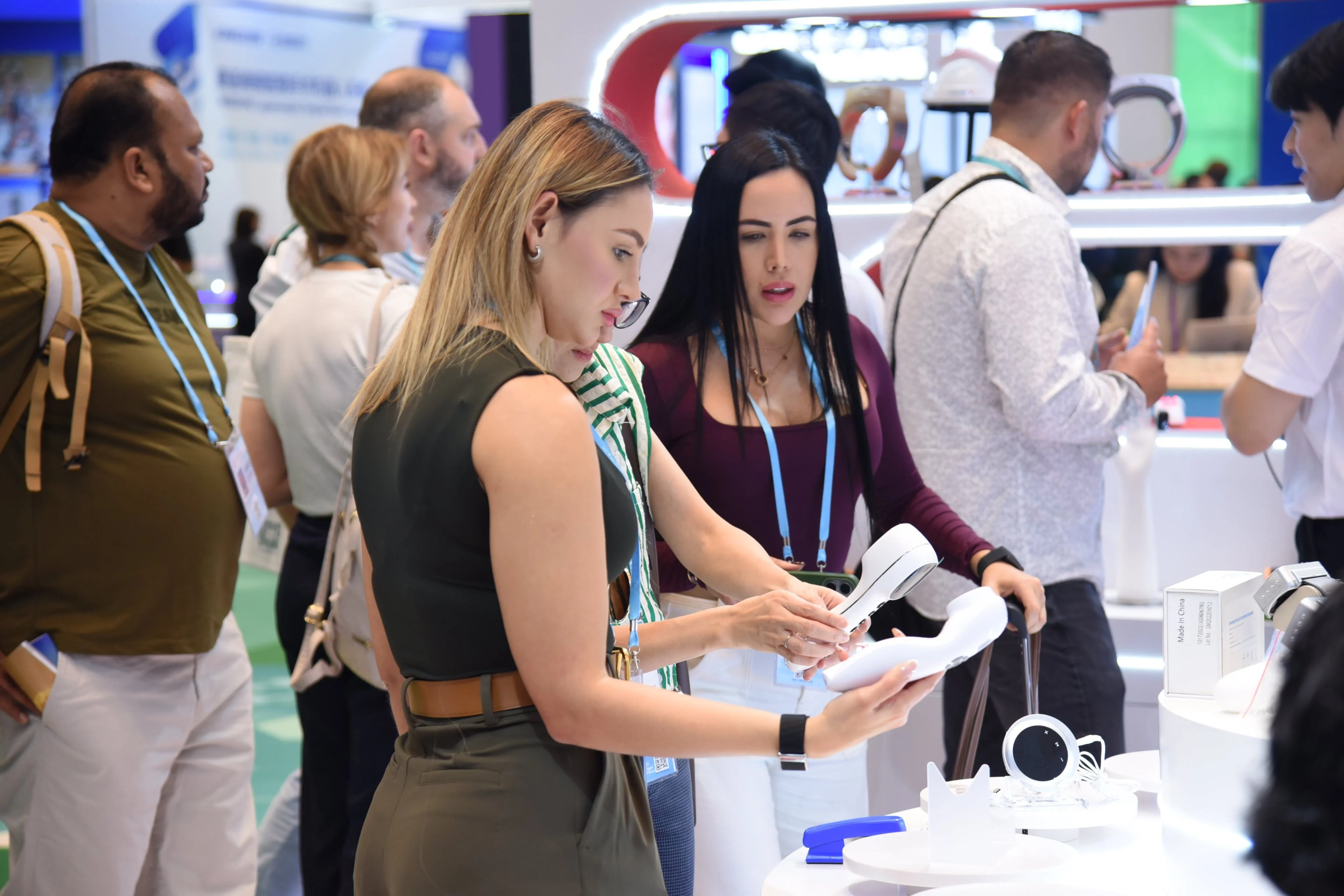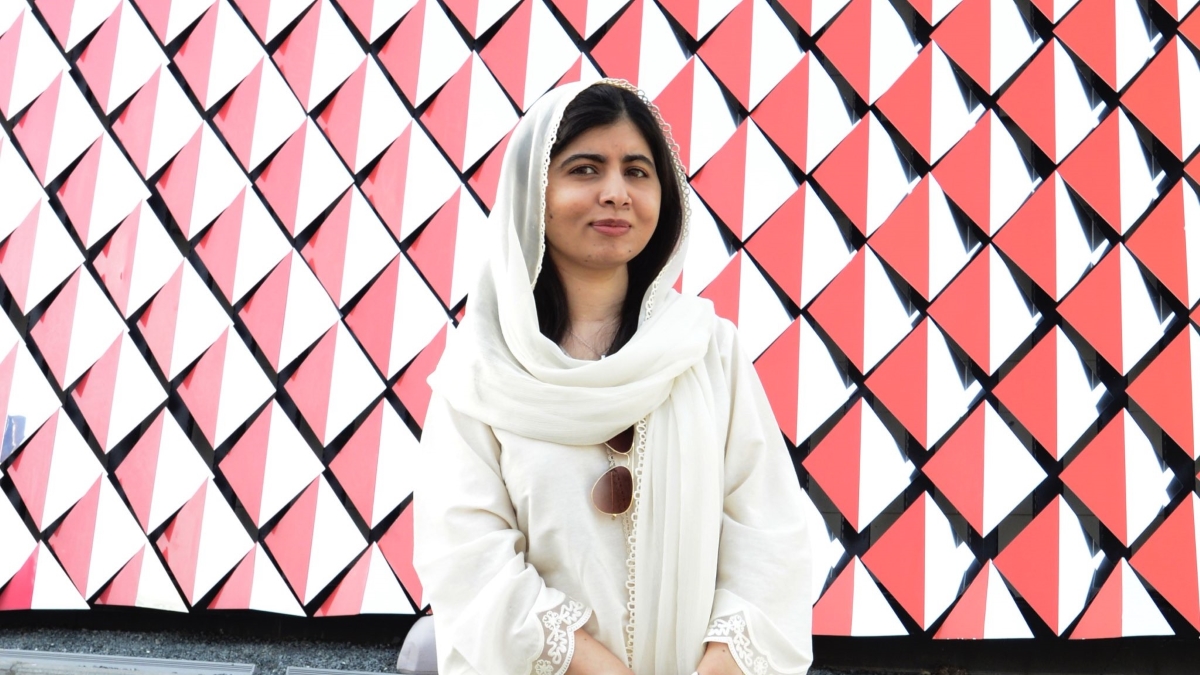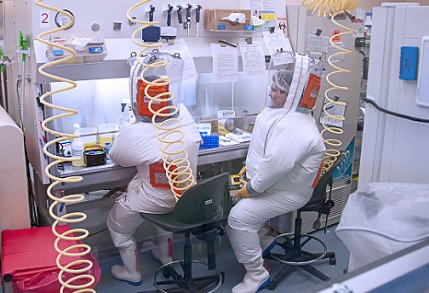Copyright scmp

As the semi-annual Canton Fair – China’s largest and oldest trade exhibition – draws to a close, a new exhibition area dedicated to digitally and technologically powered approaches to healthcare has drawn keen interest from overseas buyers. The “Intelligent Healthcare” zone, featuring 47 leading domestic manufacturers, is a showcase for medical robots and artificial intelligence (AI)-enabled imaging diagnostics, wearable devices and other applications – and a sign of China’s ambitions to rapidly climb the value chain in medical technology. “Chinese companies are now on the front lines – they’re leading in technology. I’m not exaggerating, just stating the truth,” said a German medical equipment purchaser who identified himself as Aliareh. While he had not yet placed an order at the fair on Friday, he expressed interest in a generalised medical imaging model from the Hangzhou-based Diagens Biotechnology, which won an award for innovation from business consulting firm Frost & Sullivan last year. “We’re exploring equipment for general and large hospitals, comparing what we see at exhibitions around the world. I’ll bring back what I’ve learned here, how far China’s technology has come.” The value of China’s medical device market has grown from 729.8 billion yuan (US$102.6 billion) in 2020 to 941.7 billion yuan in 2024, and is projected to exceed 1.8 trillion yuan by 2035, Frost & Sullivan said in their 2025 Blue Book report on the country’s global footprint in the sector. Fair organisers placed the new zone within the context of China’s broader efforts to build up what high-level officials call “new-quality productive forces”, or home-grown innovations with the potential to become sustainable growth drivers for the country’s economy. Reshaping China’s healthcare industry through technology – a task taking on greater importance as the country’s population ages – would also position the country’s medical device firms to progress into higher-end production, the Frost & Sullivan Blue Book report said, allowing them a chance to contend with established global leaders. Technologically, our systems have reached a world-class standard. The question is whether international markets will trust them Zheng Dan, Wiseking Powered by rapid advancements in research and the cost advantages that come with manufacturing at scale, the consulting firm added, Chinese companies have been able to price complex equipment like ultrasound machines and blood glucose monitors competitively. This has helped them gain market share and raise their profile, especially in emerging economies. Diagens’ generalised imaging model – a form of AI technology which compiles and analyses images from multiple sources to identify abnormalities – was among the more popular displays in the new zone. “Our model, trained through 80 million medical imaging data samples, can rapidly generate localised, high-precision models for medical institutes in different countries, with an accuracy of over 99 per cent,” said Yi Jing, the firm’s PR director. Another of Diagens’ flagship products, a karyotype analysis system for cell testing, allows for end-to-end automation, shortening chromosome analysis cycles from 30 days to seven. “In the chromosome testing field, global giants used to dominate about 95 per cent of the market,” Yi said. “Since our launch three years ago, we have captured over 30 per cent of China’s market share last year, taking meaningful ground from international brands.” Wiseking, a manufacturer of surgical robots, also attracted interest for its laparoscopic systems. The company said its devices can carry a latency – the response time between an operator’s action and a robot’s follow-through – as low as 70 milliseconds, beating the 80 milliseconds of rival models and landing well within the ideal range of 100 milliseconds or lower for telesurgery. “Similar imported surgical robots typically cost around 20 million yuan each, but we cost about half that,” said Zheng Dan, Wiseking’s marketing director. “Technologically, our systems have reached a world-class standard. The question is whether international markets will trust them.” Industry insiders and buyers expressed similar sentiments, saying at the fair that China’s ageing population, growing demand for health management and accelerated integration of technology are creating an opportunity for the country’s smart healthcare sector to emulate the swift rise of the electric vehicle industry. Trust and data compliance, however, remain the biggest roadblocks. Frost & Sullivan warned in its report that Chinese companies’ limited understanding of international regulations, approval processes and standards, among other factors, can create a gap between a firm’s technical potential and its success in market entry. “Many of the technologies and devices here are still rare in overseas markets, and their innovation is impressive,” said Jessica Chen, a Canadian medical device distributor. “But most companies are still in the early stages of obtaining international certifications and meeting data security standards. Regulatory, cultural and usage differences make them cautious about global expansion.” That focus on trust was echoed by Maggie Qiu, marketing director of Visbody, a company based in Xian, capital of the northwest province of Shaanxi. The firm’s AI-powered 3D body scanners are sold in 70 countries. “All user data is processed through Amazon Cloud,” said marketing director Maggie Qiu. To build global trust, she said, the company places an emphasis on data anonymisation and relies on Amazon Web Services infrastructure. Despite Chinese firms’ progress in technology and price competitiveness, Yi of Diagens said issues such as biosecurity and medical data safety are an inevitable aspect of global expansion in the medical field. “Building trust takes time,” he said. “We have our approach and our ideas, but ultimately, they must stand the test of the market.”



